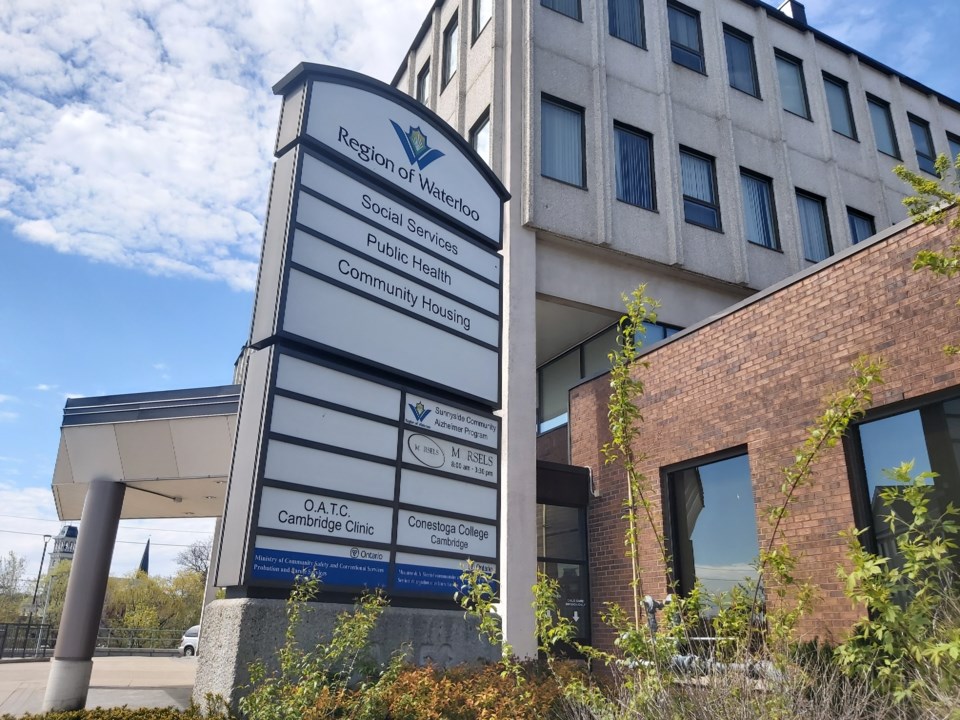Cambridge is one step closer in implementing a Consumption and Treatment Service (CTS) but it could still take several months before the service is made available.
The AIDS Committee of Cambridge, Kitchener, Waterloo & Area (ACCKWA), in collaboration with the Cambridge North Dumfries Ontario Health Team (CND OHT) and community partners, will complete the application to be the operator for the Consumption and Treatment Services (CTS) to be located at 150 Main St. in Cambridge.
“Given the City of Cambridge has endorsed and designated 150 Main as the CTS site, and potential clients’ familiarity with ACCKWA and partners services at this location, we see this as a positive and strong application to the Ministry of Health,” said Kristin Kerr, executive director, Stonehenge Therapeutic Community and CND OHT Steering Committee Mental Health and Addictions lead at a virtual announcement made on Tuesday.
“As we all know this is something that has been a long time coming."
It's been almost eight months since city council voted to endorse 150 Main as the preferred site after years of consultation with residents, many of whom voiced overwhelming opposition to the harm reduction facility in an online survey held prior to last fall's vote.
Fatal opioid overdoses in Waterloo Region alone increased from 61 in 2019 to 105 in 2020. This is an increase of 58 per cent in one year.
“We have lost over 500 individuals to overdose in the last 5-6 years in Waterloo Region. That is a sad and disheartening statistic to repeat."
In Cambridge, in the last 4-5 years, we have lost over 100 individuals to overdose. I’m certain that the community does not want another life lost due to drug poisoning or drug toxicity,” said Ruth Cameron, executive director at ACCKWA.
“We want a safe place for people who are going to use substances anyways, so they can use without stigma and receive supports to keep them as healthy as they can be. This can also help open the door to engage with other services that may help them along their journey which could include recovery and other forms of treatment.”
Kerr said Consumption and Treatment Services are proven to work, both in saving lives and addressing many community concerns that come with substance use.
“ACCKWA is already a leader in this space and as a community health partner, we are grateful for their role in preparing the CTS application and potentially leading this life-saving service in our community.” Kerr said.
Cambridge Memorial Hospital supports ACCKWA’s application to operate the CTS site at 150 Main St.
“This is a definite gap in the continuum of care for residents within Cambridge and North Dumfries and ACCKWA has both the experience and the expertise to ensure this life saving service is launched. They are familiar with the location and are well connected to refer clients to the care and services they may need,” said Patrick Gaskin, CMH's president and CEO.
Cambridge councillor Donna Reid said she is also in full support of ACCKWA’s application to operate the CTS.
“I am a strong supporter. The work ACCKWA has done in Cambridge has been really wonderful and I really believe that they will be the proper organization to lead the CTS. I think it is the right time and about time we had a CTS in Cambridge and I believe it’s at the right place at 150 Main St.,” Reid said.
Cameron said the support received getting to this stage has been phenomenal.
“Partnerships are everything when it comes to supporting this need in our community. We are pleased to be providing another piece of the harm reduction continuum in the community, an important life-saving and supportive intervention for community members who are challenged by drug and substance abuse,” Cameron said.
But Cameron said, it is hard to say when the CTS will open.
“I was involved in the supporting organizations to the CTS in Kitchener. There are so many factors that have changed since that submission, mainly being the COVID-19 pandemic, and an intensification related to the drug poisoning and drug toxicity crisis in our community,” Cameron said.
Kerr said there are alternate narratives in the community and that is to be expected.
“There is a lot of stigma around individuals who use substances, and that is something, as healthcare organizations and social service organizations, we are continually working to challenge and to change,” she said.
Cameron said the plan in the future is to also bring a safe supply to Cambridge.
“It is a common-sense future development once services are established. It is another piece of the puzzle where people are supported and in a safe space to reduce potential harm,” Cameron said.
Kerr said operating a CTS does not mean a safe supply will be offered as part of the same program.
“They are not one in the same. These two services are quite different,” Kerr said.
Consultations with local residents, program participants and businesses, services and establishments in close proximity to the site are forthcoming.
Engagement goals include an opportunity provide input and feedback into how best to provide these lifesaving services at the site, while being a good neighbour and community partner.
“ACCKWA is pleased to lead the CTS application,” Cameron said.
“Our great community partnerships at the Cambridge MACS site are the wrap-around services required by the Ministry for Consumption and Treatment Services. Together, our combined staff and peers are the friendly welcoming team and the human element that make safer consumption and pathways into treatment accessible, improving health and well being for community members who use drugs.”
Anyone wanting to learn more about CTS and harm reduction can contact ACCKWA at [email protected]. Questions will be compiled and answers to common questions will be posted on the CTS FAQ page of the ACCKWA website: https://www.acckwa.com/faq-cambridgects/
Opportunities for the Cambridge community to provide engagement and feedback will be posted and shared within the next week on the CTS FAQ page of the ACCKWA website: https://www.acckwa.com/faq-cambridgects/.



